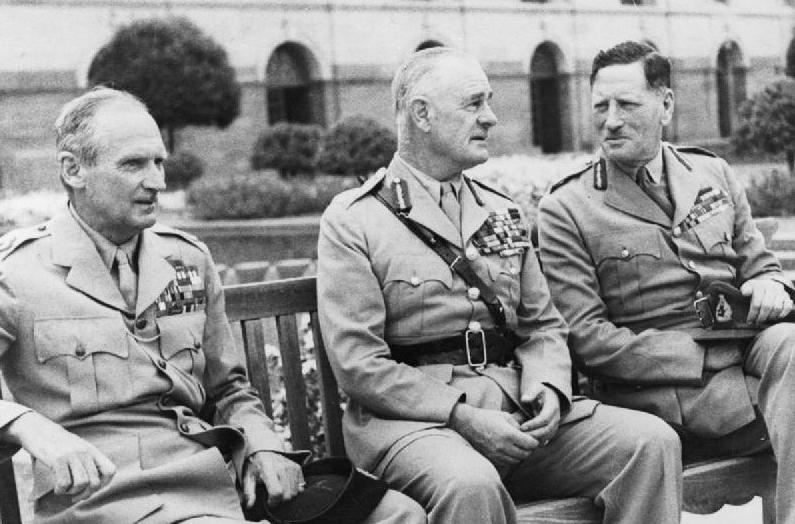Nagy-Britannia akkor attól nagyhatalom, hogy többezer kilométerre a határaitól üres frázisokat és ígéreteket puffogtathat ünnepélyes zászlólobogtatás és "God save the Queen" éneklés közepette?Egy nagyhatalom attól nagy, hogy nem csak a szomszédos országban tudja
érvényesíteni az elképzeléseit
[BIZTPOL] Kaukázus (Azerbajdzsán, Grúzia, Örményország, ...)
- Téma indítója xfotel
- Indítva
-
Ha nem vagy kibékülve az alapértelmezettnek beállított sötét sablonnal, akkor a korábbi ígéretnek megfelelően bármikor átválthatsz a korábbi világos színekkel dolgozó kinézetre.
Ehhez görgess a lap aljára és a baloldalon keresd a HTKA Dark feliratú gombot. Kattints rá, majd a megnyíló ablakban válaszd a HTKA Light lehetőséget. Választásod a böngésződ elmenti cookie-ba, így amikor legközelebb érkezel ezt a műveletsort nem kell megismételned. -
Az elmúlt időszak tapasztalatai alapján házirendet kapott a topic.
Ezen témában - a fórumon rendhagyó módon - az oldal üzemeltetője saját álláspontja, meggyőződése alapján nem enged bizonyos véleményeket, mivel meglátása szerint az káros a járványhelyzet enyhítését célzó törekvésekre.
Kérünk, hogy a vírus veszélyességét kétségbe vonó, oltásellenes véleményed más platformon fejtsd ki. Nálunk ennek nincs helye. Az ilyen hozzászólásokért 1 alkalommal figyelmeztetés jár, majd folytatása esetén a témáról letiltás. Arra is kérünk, hogy a fórum más témáiba ne vigyétek át, mert azért viszont már a fórum egészéről letiltás járhat hosszabb-rövidebb időre.
-
Az elmúlt időszak tapasztalatai alapján frissített házirendet kapott a topic.
--- VÁLTOZÁS A MODERÁLÁSBAN ---
A források, hírek preferáltak. Azoknak, akik veszik a fáradságot és összegyűjtik ezeket a főként harcokkal, a háború jelenlegi állásával és haditechnika szempontjából érdekes híreket, (mindegy milyen oldali) forrásokkal alátámasztják és bonuszként legalább a címet egy google fordítóba berakják, azoknak ismételten köszönjük az áldozatos munkáját és további kitartást kívánunk nekik!
Ami nem a topik témájába vág vagy akár csak erősebb hangnemben is kerül megfogalmazásra, az valamilyen formában szankcionálva lesz
Minden olyan hozzászólásért ami nem hír, vagy szorosan a konfliktushoz kapcsolódó vélemény / elemzés azért instant 3 nap topic letiltás jár. Aki pedig ezzel trükközne és folytatná másik topicban annak 2 hónap fórum ban a jussa.
You are using an out of date browser. It may not display this or other websites correctly.
You should upgrade or use an alternative browser.
You should upgrade or use an alternative browser.
*KingNagy-Britannia akkor attól nagyhatalom, hogy többezer kilométerre a határaitól üres frázisokat és ígéreteket puffogtathat ünnepélyes zászlólobogtatás és "God save the Queen" éneklés közepette?
Ő mondta? Mert szerintem Kamilla hordja a dragonyoscsimmát...
God Save the King! az éppen aktuális forma.Ő mondta? Mert szerintem Kamilla hordja a dragonyoscsimmát...
Azért nagyon ne hisztizzétek le magatokat így ebéd után
A bengáliai éhinségről mondanál valamit,még mielőtt leborulsz King Charles lábai elé? Csak hogy milyen f@sza gyerekek voltak az angolok.
Hogyne, bár nem igazán értem, hogy jön ez a topichoz vagy a fenti hírekhez.A bengáliai éhinségről mondanál valamit,még mielőtt leborulsz King Charles lábai elé? Csak hogy milyen f@sza gyerekek voltak az angolok.
Szárazság, japán támadástól való félelem stb. Volt előtte is jópár éhínség Indiában.
A hadsereg csak úgy mellékesen jegyzem meg, kiosztott 110 millió ingyen ételadagot!
Churchill nyakába varrni meg ódivatú bűnbak keresés - bár tény hogy nem kedvelte az indiaiakat.
De ahogy kiderült, hogy mekkora gáz van és az alkirály intézkedett, rövid úton véget vetettek az éhínségnek.

Churchill and the Genocide Myth: Last Word on the Bengal Famine
Far from seeking to starve India, Churchill sought every possible way to alleviate the famine without undermining the war effort.
Rövid úton,csak addig alsó hangon egy millióan éhen haltak. Nem értem ezeket a szánalmas válaszokat.Hogyne, bár nem igazán értem, hogy jön ez a topichoz vagy a fenti hírekhez.
Szárazság, japán támadástól való félelem stb. Volt előtte is jópár éhínség Indiában.
A hadsereg csak úgy mellékesen jegyzem meg, kiosztott 110 millió ingyen ételadagot!
Churchill nyakába varrni meg ódivatú bűnbak keresés - bár tény hogy nem kedvelte az indiaiakat.
De ahogy kiderült, hogy mekkora gáz van és az alkirály intézkedett, rövid úton véget vetettek az éhínségnek.

Churchill and the Genocide Myth: Last Word on the Bengal Famine
Far from seeking to starve India, Churchill sought every possible way to alleviate the famine without undermining the war effort.winstonchurchill.hillsdale.edu
Bazeg. Mit kellett volna csinálni?Rövid úton,csak addig alsó hangon egy millióan éhen haltak. Nem értem ezeket a szánalmas válaszokat.
Ahogy és amint tudtak, intézkedtek.
Ja, meg úgy közben meg kellett vívni egy világháborút mellesleg.
Nem igen rémlik, hogy bárki más segített volna szerencsétleneknek. A lehetőség megvolt rá pedig.
Mégis kinek kellett volna segíteni,te oktondi?kinek lett volna lehetősége? Mondj egyet! Kinek a gyarmata volt? Miért nem kötött ki néhány gabonával megrakott Ausztráliából induló teherhajó. Ennyire agyhalott azért ne legyél,mert az ott megtermelt élelmiszert vitték el az utolsó rizsszemig.Bazeg. Mit kellett volna csinálni?
Ahogy és amint tudtak, intézkedtek.
Ja, meg úgy közben meg kellett vívni egy világháborút mellesleg.
Nem igen rémlik, hogy bárki más segített volna szerencsétleneknek. A lehetőség megvolt rá pedig.
Pont Churchill volt az, akinek az utasítására még küldtek gabonát.Mégis kinek kellett volna segíteni,te oktondi?kinek lett volna lehetősége? Mondj egyet! Kinek a gyarmata volt? Miért nem kötött ki néhány gabonával megrakott Ausztráliából induló teherhajó. Ennyire agyhalott azért ne legyél,mert az ott megtermelt élelmiszert vitték el az utolsó rizsszemig.
+ott a fenti 110 millió kaja is többek között.
Néhány hajó sokat nem osztott-szorzott volna
Egyébként meg a kva nagy szárazság volt a fő oka, ehhez jött a háború,
amiben élet-halál harcát vívta éppen Britannia.
Pont Churchill volt az, akinek az utasítására még küldtek gabonát.
+ott a fenti 110 millió kaja is többek között.
Néhány hajó sokat nem osztott-szorzott volna
Egyébként meg a kva nagy szárazság volt a fő oka, ehhez jött a háború,
amiben élet-halál harcát vívta éppen Britannia.
Churchill volt a hibás az 1943-as bengáli nagy éhínség miatt
Churchill úr hibája: 1943 óta a bengáli éhínség
Nagy indiai ehhalal kozben csucsra ingerli magat Aliyev...
Kedvenc semlegesnek tuno am Bakuban irt csatornaja kozvetiti a fenyegetest...
Kedvenc semlegesnek tuno am Bakuban irt csatornaja kozvetiti a fenyegetest...
Nem, nem az ő hibája.Churchill volt a hibás az 1943-as bengáli nagy éhínség miatt
Churchill úr hibája: 1943 óta a bengáli éhínséghu.koshachek.com
On 7 October, Churchill told the war cabinet that one of the new viceroy’s first duties was to see to it “that famine and food difficulties were dealt with.” He wrote to Wavell the next day: “Every effort must be made, even by the diversion of shipping urgently needed for war purposes, to deal with local shortages.” Churchill refused a Canadian offer of 100,000 tons of food aid for Bengal because it would have taken two months to arrive, but the same war cabinet meeting resolved to seek Australian supplies instead.
By January 1944, Bengal had received a total of 130,000 tons of barley from Iraq, 80,000 tons of wheat from Australia and 10,000 from Canada, followed by a further 100,000 from Australia. Then, on 14 February 1944, Churchill called an emergency meeting of the war cabinet to see if more food aid could be sent to Bengal without wrecking Allied plans for the coming Normandy landings. “I will certainly help you all I can, but you must not ask the impossible,” Churchill telegraphed Wavell before the cabinet met. The next day, he informed Wavell: “We have given a great deal of thought to your difficulties, but we simply cannot find the shipping.”
Nem, nem az ő hibája.
On 7 October, Churchill told the war cabinet that one of the new viceroy’s first duties was to see to it “that famine and food difficulties were dealt with.” He wrote to Wavell the next day: “Every effort must be made, even by the diversion of shipping urgently needed for war purposes, to deal with local shortages.” Churchill refused a Canadian offer of 100,000 tons of food aid for Bengal because it would have taken two months to arrive, but the same war cabinet meeting resolved to seek Australian supplies instead.
By January 1944, Bengal had received a total of 130,000 tons of barley from Iraq, 80,000 tons of wheat from Australia and 10,000 from Canada, followed by a further 100,000 from Australia. Then, on 14 February 1944, Churchill called an emergency meeting of the war cabinet to see if more food aid could be sent to Bengal without wrecking Allied plans for the coming Normandy landings. “I will certainly help you all I can, but you must not ask the impossible,” Churchill telegraphed Wavell before the cabinet met. The next day, he informed Wavell: “We have given a great deal of thought to your difficulties, but we simply cannot find the shipping.”
Winston Churchill és az indiai horror | CIVILHETES
„Ha ételt küldünk nekik, akkor túlszaporodnak…”
 www.civilhetes.net
www.civilhetes.net
No offense ha már angolosan akarod, de a királynő nyilatkozott már a genderjéről? Mert nem látom kirakva az oldalán, addig meg mindenki eldöntheti, hogy isten a királyt vagy a királynét borotválja le....
Mennek a katonaink a hatarra.Mindenki kap 15 perc telefonalast elbucsuzni a csaladtol.Iranbol ma egyertelmu informaciok erkeztek Jerevanba az Azeriek szandekairol.

